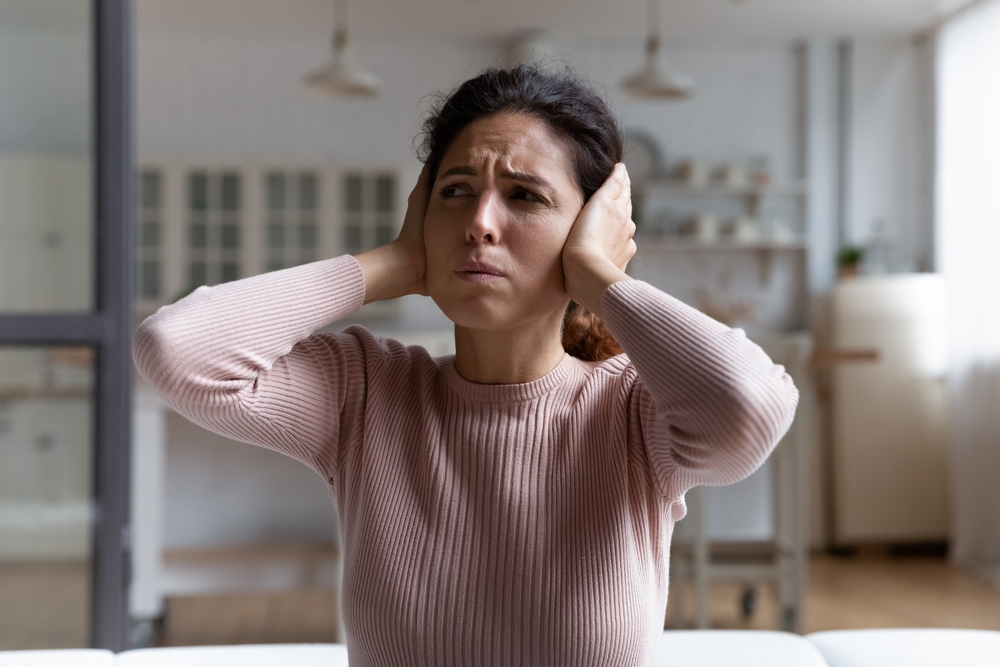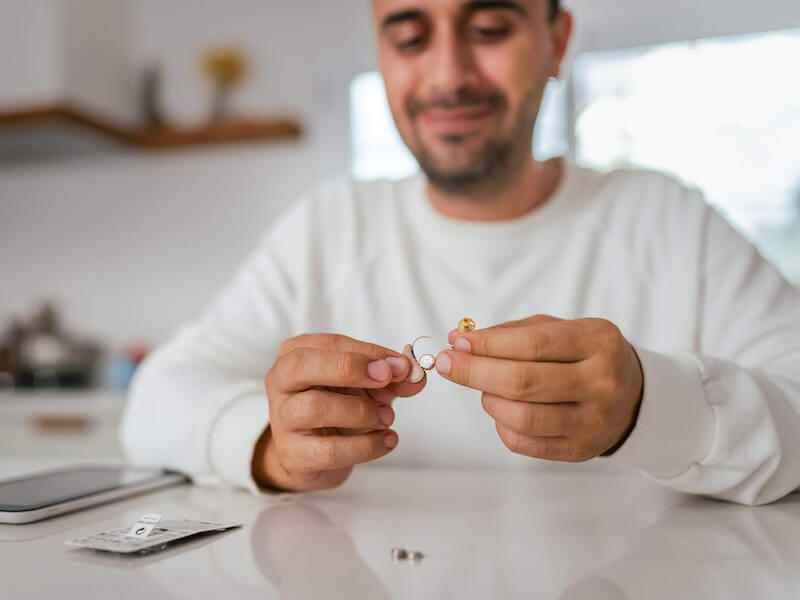Tinnitus misconceptions are no laughing matter.
When you hear a joke, you know there’s going to be a punchline, and it’s probably going to be ridiculous. But unlike jokes, silly misconceptions can hurt people if believing them causes individuals to react in a manner that isn’t advisable.
Do you have any ridiculous tinnitus misconceptions?
Let’s find out.
1. Tinnitus is a disease
Tinnitus isn’t actually a disease. It’s a symptom of another health condition. That condition may be high blood pressure, diabetes, depression, anxiety, prolonged noise exposure, or another health issue.
2. Tinnitus isn’t curable
This tinnitus misconception is technically false. There is no known cure for tinnitus. You can’t simply take a pill and instantly get rid of it.
You can figure out what the underlying health condition causing it is, however. Often, you can eliminate your tinnitus by treating the underlying health issue. If that doesn’t work, there are very effective treatments for tinnitus. One treatment involves training your brain not to hear the sounds tinnitus creates.
3. If I stop eating chocolate, my tinnitus will go away
Some people find that caffeine, preservatives, or other food additives make tinnitus worse. They may choose to avoid foods or drinks that contain these substances, but currently, science has found no evidence that certain foods or additives cause tinnitus.
4. Tinnitus means I’m losing my hearing
Tinnitus is considered a form of hearing loss because it can be so loud that it becomes difficult to hear and understand others. But tinnitus is completely separate from traditional hearing loss. It doesn’t lead to or cause age-related hearing loss.
It can, however, be a warning sign, as you’ll discover in the next tinnitus misconception.
5. It’s best to simply learn to live with it
This is partially true. Tinnitus doesn’t hurt you, physically. You may find that you can do specific things to mitigate its effects.
But tinnitus often acts as a warning sign that you’re doing something to harm your body and/or your hearing. For example, if you leave a loud concert with ringing in your ears, even if the ringing goes away, it’s a sign the concert was too loud.
Tinnitus may also warn you that you need to check your blood pressure or that your blood sugar levels are too high.
Listen to your body. Work with a hearing specialist to get to the root cause of your tinnitus. Make changes in your lifestyle and follow your doctor’s orders to eliminate most tinnitus symptoms.
6. It can’t be tinnitus because I hear static
Tinnitus doesn’t always cause a ringing sound. It can also sound like:
- Buzzing
- TV static
- The dial tone on a phone
- Thumping
- Whirring, like the sound a blender makes
Tinnitus can cause many other sounds in your ears. Some say they hear a particular rhythm, which takes having a song stuck in your head to a whole new level.
7. It’s all in your head
Okay, this is partially true. Tinnitus causes sounds in the inner ears, which are inside your head. But tinnitus isn’t your mind playing tricks on you. In some cases, a hearing specialist can use a special instrument to listen to what you’re hearing.
8. The tinnitus conundrum is hard to solve
It can sometimes be difficult to find the root cause of an individual’s tinnitus. In some instances, the cause is something simple, such as wax buildup deep in the outer ear. That’s why it’s important to talk to a hearing specialist. If it’s a wax build-up, it needs to be removed by a professional to avoid causing serious damage to your eardrum.
9. Hearing aids only treat hearing loss, not tinnitus
Modern hearing aids can treat both hearing loss and tinnitus. Some hearing aids play sounds that cancel tinnitus sounds. After wearing these types of hearing aids for an extended period of time, you will no longer hear the tinnitus sounds. Hearing aids also make it easier to hear voices, the TV, music, and other external sounds over the tinnitus sounds.
For most people, tinnitus is worse when they’re in silent rooms. If you’re hearing everything more clearly through your hearing aids, you’ll rarely be sitting in silence.
You don’t have to suffer
Tinnitus does have a variety of causes, but it’s important not to accept tinnitus misconceptions as fact. Determining what’s causing your tinnitus and treating it can significantly reduce or eliminate the unpleasant symptoms. If you’re dealing with tinnitus, talk to a hearing specialist as soon as possible.



